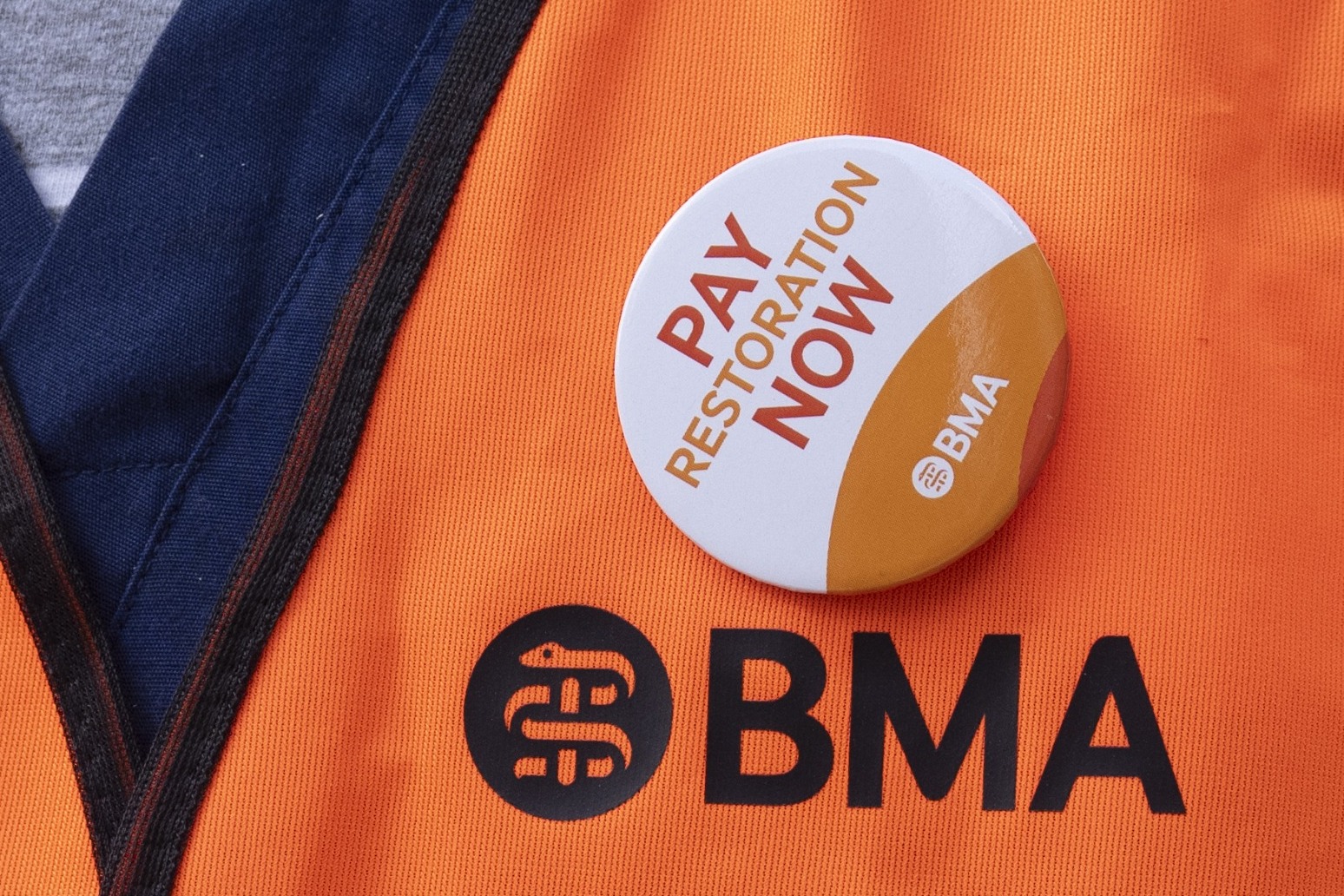
NHS braces for junior doctors’ strike
The NHS is bracing for a difficult few days as almost half of the medical workforce in England are set to go on strike during one of the busiest periods of the year.
The NHS is bracing for a difficult few days as almost half of the medical workforce in England are set to go on strike during one of the busiest periods of the year.
Junior doctors are to take to picket lines from 7am on December 20 to 7am on December 23 in a major escalation in the bitter dispute over pay.
Hospital leaders have described the walkouts as their “worst fears realised” as they grapple with a rising number of people needing help with winter viruses, particularly norovirus.
Training medics who are members of the British Medical Association (BMA) are also preparing for the NHS’ longest ever walkout, for six whole days from January 3.
It comes as:
– Cheltenham A&E has been forced to temporarily close at various points in the coming weeks due to strikes.
– Leading health and patient organisations warned that the strikes could lead to patients “stranded” in hospital over Christmas, despite being ready to go home.
– In a letter, Age UK, NHS Confederation, Healthwatch England, National Voices and The Patients Association also warned that the NHS would find it “extremely difficult” to maintain safe care during the walkouts.
– Health Service officials said the timing of the strikes leaves them just two normal working days in three weeks due to public holidays and strikes.
– The NHS has said emergency and urgent care will be prioritised during the strikes and that “almost all” routine care will be affected.
– NHS England’s national medical director Professor Sir Stephen Powis warned that the strike would cause “huge disruption” but urged people to seek care when they need it.
On Tuesday, Rishi Sunak described the strikes as “very disappointing”.
The Prime Minister told the Commons Liaison Committee: “The question more is for the junior doctors, as to why they are refusing to accept something that everyone else is now accepting, on top of having a pay increase which is more generous than anyone else’s set by the independent body going into this.”
Health Secretary Victoria Atkins urged the BMA to call off the strikes and resume talks.
“But we know that despite these measures and the hard work of NHS staff, these strikes can cause significant disruption to patients and add extra pressure on the NHS,” she said.
“My door remains open should the BMA Junior Doctors Committee cancel these disruptive strikes and come back to the negotiating table as we were making good progress.”
In a joint statement, BMA junior doctors committee co-chairs, Dr Robert Laurenson and Dr Vivek Trivedi, said: “We had hoped that after a much-improved tone and approach from the new Health Secretary, Victoria Atkins, we were close to a solution to this dispute.
“We were encouraged by her insistence last week that even after our mutually agreed deadline had passed and we were forced to call new strikes, we had still not heard her ‘final offer’.
“We have spent the last two weeks awaiting this final offer in the hope it would be the long-awaited credible offer we could put to our members. Unfortunately, we are still yet to hear it.”
They called on Ms Atkins to arrange talks “regardless of whether strikes are scheduled”.
Prof Philip Banfield, BMA chair of council, added: “This is the last strike action of 2023, which will have seen 28 days of action by junior doctors. The Government is entirely capable of making the total for 2024 zero days – but it needs to make a serious and credible offer now that we can put to members.”
Commenting on the action, Sir Julian Hartley, chief executive of NHS Providers, said: “Trust leaders’ worst fears have been realised – they were dreading more strikes this winter, and now junior doctors are starting a three-day full walkout. This is the last thing the NHS needs.
“Last winter was the worst that many trust leaders can remember and they’re expecting this one to be even tougher.
“We urge the Government and unions, without any preconditions, to get back round the negotiating table, break the deadlock and stop these strikes.”
Matthew Taylor, chief executive of the NHS Confederation, added: “There is no doubt that these strikes are coming at the worst possible time, with the NHS entering the most difficult period of the year.
“Over the periods of industrial action patients could face longer waits, planned appointments and non-urgent treatments being rescheduled and some consolidation of services.”
The BMA announced the strike earlier this month after talks between junior doctors and the Government broke down.
Junior doctors in Wales are planning a 72-hour walkout from January 15, while doctors in training in Northern Ireland are being balloted for potential strike action. Those in Scotland have already come to an agreement with the Scottish Government.
Consultant doctors from the BMA in England have reached a deal with the Government, with members currently voting whether or not to accept the deal.
Specialist, associate specialist and specialty doctors (SAS) in England have also come to an agreement, which is being put to members.
Published: by Radio NewsHub